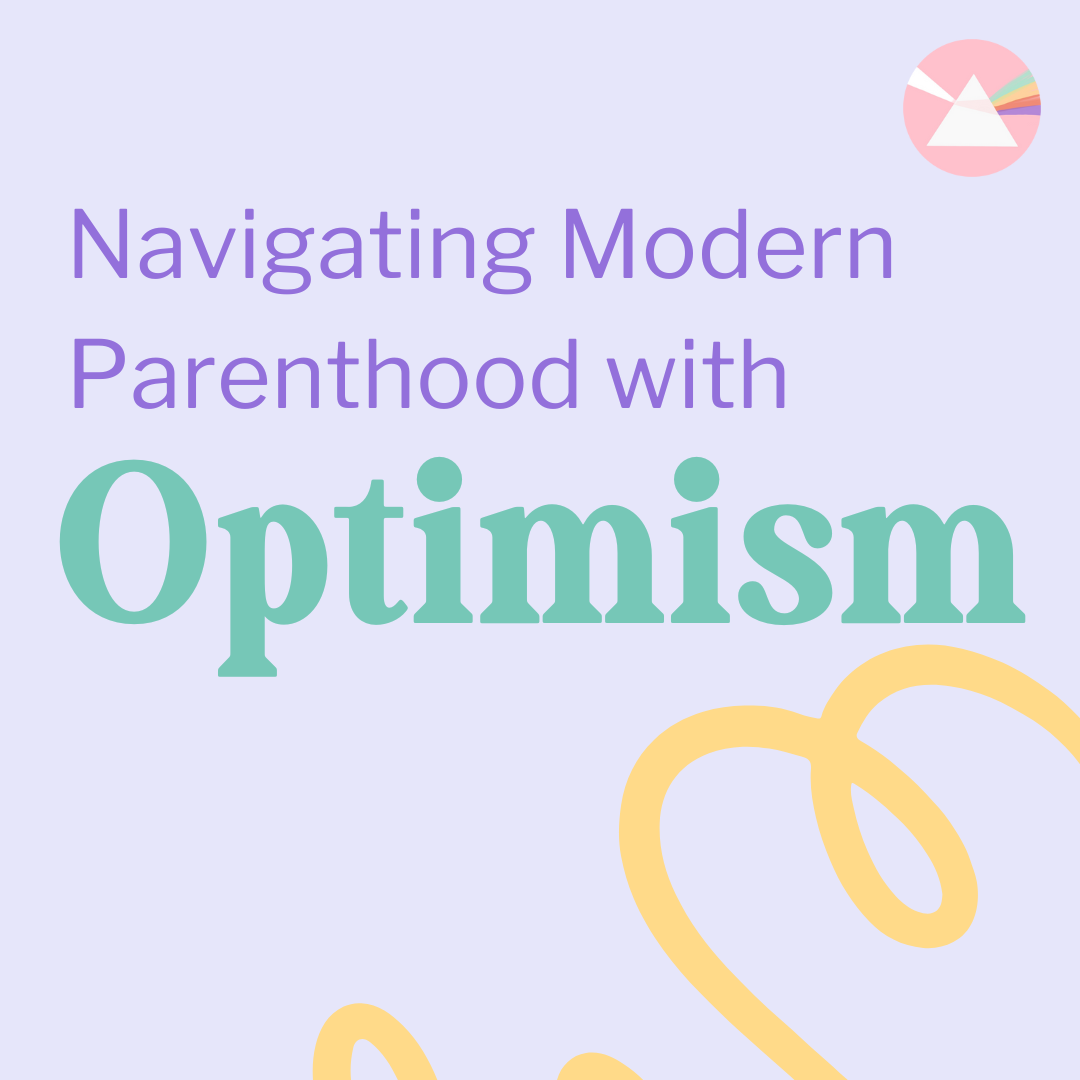Gratitude feels too Awkward...
Listen to this post as a podcast:
Three main personality traits that keep parents (and humans!) from feeling gratitude are:
Ego
Cynicism
Resentment
Sure, sometimes you’re just not grateful. Let’s be honest, we have all been on the receiving end of a gift we weren’t totally excited about. Maybe one that is a little bit ridiculous, like a complicated puzzle for a 2-year-old, but we want to be nice, so we fawn gratefulness - but are we grateful? Probably not. This inauthentic response is natural and comes from a good place – a place of compassion! And if we feel into it enough, sure, we can get to gratitude – after all, it's the thought that counts.
In those moments, we may not benefit from the well-being boost gratitude typically offers because the feeling of gratitude is most beneficial when it is felt most intensely. It is then downloaded into our operating systems with a deep level of truth, enough to motivate us to shift perspectives, exercise, connect with other humans and feel more confident and less of a mess.
But if we want to feel these things, it’s got to feel real for it to stick.
Inauthenticity is an obstacle to gratitude. But it's not permanent – we can bounce in and out of this fleeting feeling or what scientists would classify as a state. You are not an inauthentic person for being outwardly grateful but inwardly not. It’s just a moment in time.
What is a State? Well, a state is a more temporary feeling, and its counterpart, which scientists call a trait, is more of a baked-in mode of being in the world. So you can be afraid of something (a state) or fearful, always worried or on edge (a trait). You can be shy in a new situation but warm up over time (a state), or you can be extremely introverted and never able to warm up (A trait).
Gratitude is a tremendous emotion because it isn’t just an emotion. It can be both a state AND a trait. You can be in a state of gratitude or possess the trait of gratitude (don’t worry, its learnable too). I view the Altruistic state of gratitude as a never-ending cycle of good begets good. Gratitude can also broaden and build your perspective to the point where instead of behaving like a fleeting emotion or state, it becomes more of a permanent mindset or trait. But altruistic gratitude is hard because, let’s be honest, it involves other people.
And the most common barrier to sharing thankfulness with other people is awkwardness. I am sure you feel it too. Every time I ask a mom friend for help, it’s awkward to share just how grateful I am to her because it’s like a LOT, a LOT, and that seems like TOO much to share. I may make her feel weird about helping me in the first place, so I temper my thanks. Do you? Well, come to find out, this is normal!
In a study named “Under Valuing Gratitude,” Amir Kumar and Nick Epley asked people to write a letter of gratitude to a friend. They then asked them to rate the following:
how awkward the friend would feel reading it,
how surprised they would be by the letter, and
how happy it would make them feel.
On the whole, they found that people underestimated the effect the letter would have on the receiver, how surprised they would be — AND they overestimated the level of awkwardness the receiver would feel. People loved the letters — they didn't feel awkward about them at all. They were happy to hear the good things they had contributed to another’s life. And it made them feel good to get a letter saying that, in fact much more than what the letter’s authors had predicted.
Whoops, so awkwardness around saying “Thank You” or writing a quick note to a colleague is not as big of a deal as we think it’s going to be — in fact, that belief gets in the way of us realizing just how important our sentiments will be to that person.
After that info, I'm psyching myself up to write my letter, are you? Well, here’s one more motivator. The research on its benefits to your well-being is super strong as well. Some of the longest-lasting effects of gratitude measured have been in the months following the mailing of a gratitude letter to a friend, with people still feeling the effects sometimes as long as 2 months later. (that’s the research of Professor Robert Emmons)
Interestingly, an over-inflated ego typically doesn’t let us forget just how important we are to other people. You need to be humble to be afraid to send your letter. And that’s a good thing! Saying to yourself, “Oh no it won't matter that much to them. They won’t care. It will just be weird.” actually opens you up to more gratitude.
Humility is crucial to a regular practice of gratitude. Researchers behind the study, “Thieves of Thankfulness: Traits that inhibit Gratitude,” report, “Humility fosters thankfulness when one believes that they are superior to others and one has a high sense of entitlement, all benefits from others cease to be gifts; they are simply the goods that others and life owes them.”
So let’s take the advice of the “awkwardness” researchers and start handing out letters and thank you’s. (Yes, thank you cards actually matter, but let your child pick what to say so you can keep that authenticity and intensity alive.) We can model humility and grace in other ways too.
We can model waiting - literally waiting. Have you ever tried waiting for your child without your standard narration? The next time you leave the house, cut your talking to a minimum and simply wait for them. Yes, this can be hard, especially when you know the morning sequence and just how many seconds it will take to go from on time to late, but you are modeling patience so it will be worth it!
We can model saying No. Just because we are wanted and needed everywhere by everyone does not mean we need to say Yes. Why do I know this is a problem for you? Well, it's a problem for most moms. We want to be in three places simultaneously because we want everyone to be happy. Unfortunately, we are teaching our children how to overextend themselves. By modeling saying "No," we demonstrate to our children the boundaries needed for a more curated and intentional life.
Finally, the simplest way to counter entitlement for both ourselves AND our kids is to shift the focus away from what we don't have to what we do have. A daily gratitude practice introduces the language of "enough" into our homes.
To introduce a family gratitude practice, you must start a practice yourself. Children do learn best through modeling. You can include them in the process, but by showing them, it’s part of your life, you will make it safe and introduce valuable mindset-shifting vocabulary to your homes. Including your kids in your practice could be as simple as asking your children to pick a letter from the alphabet and see how many good things you can list that begin with the letter – or by writing down three things you're grateful for each morning on a wipe-off board in the kitchen. The point is to do it daily and ensure they see you doing it.
Obstacles to gratitude are manageable. We can get there. The awkwardness is a mirage, and your ego is not in charge. We can find ways to take that fleeting emotion and make it a trait to step into an entirely grateful way of being. And when you do, I know the first thing you will discover is that you’re a pretty awesome mom already - in fact, you are Good AF. - Stef
























